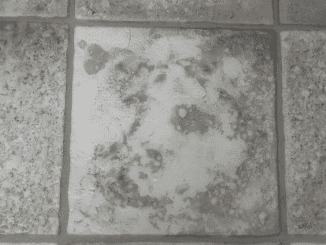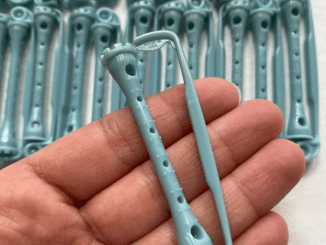Most people consider washing their armpits a fundamental part of their daily hygiene routine. After all, we’ve been taught that soap and water are the ultimate solutions to staying clean and odor-free. But what if this seemingly harmless habit is actually making you smell worse? It sounds counterintuitive, right? Yet, this surprising reality affects many people who struggle with persistent body odor despite their best efforts to stay clean.
Understanding why this happens requires a closer look at how our bodies function, the role of bacteria, and how common hygiene practices may unintentionally disrupt the balance. Washing your armpits the wrong way—or too frequently—can lead to a cascade of effects that exacerbate odor instead of eliminating it. Let’s explore the science behind body odor, the pitfalls of overwashing, and how you can modify your routine to keep yourself smelling fresh and healthy.
Understanding Body Odor: It’s Not Sweat, It’s Bacteria

Many of us associate body odor directly with sweat, but here’s the truth: sweat itself is odorless. What you’re smelling is actually the result of bacteria that live on your skin. Your armpits are a prime breeding ground for these bacteria because they’re warm, moist, and often covered—perfect conditions for bacterial growth.
When you sweat, especially through apocrine glands found in your armpits, the bacteria on your skin break down the proteins and fats in your sweat. This process produces the unpleasant odors we’re all familiar with. If you think about it, sweat isn’t the enemy—it’s the bacteria. So, why does washing sometimes make things worse? It’s because aggressively washing your armpits can disrupt the natural ecosystem of bacteria on your skin, potentially creating an imbalance that favors odor-causing bacteria. This delicate balance is crucial, and overwashing or using harsh soaps can throw it completely off-kilter.
How Overwashing Can Make Odor Worse
When it comes to hygiene, many people believe that more is better. But the truth is, overwashing your armpits can do more harm than good. Washing too frequently or scrubbing too aggressively strips your skin of its natural oils and removes the healthy bacteria that help regulate your skin’s microbiome. This disruption allows odor-causing bacteria to flourish in an unbalanced environment.
Your skin’s microbiome acts as a shield, maintaining a balance between good and bad bacteria. By overwashing, you’re not only removing dirt and sweat but also eliminating beneficial bacteria that play a vital role in controlling odor. The result? Your armpits may end up smelling worse than they did before you started washing them. This phenomenon is like cutting down a healthy garden in an effort to remove weeds, only to find the weeds growing back stronger and more aggressively than before.
The Role of pH and Soaps in Body Odor
Another factor that contributes to persistent body odor is the type of soap or cleanser you’re using. Many soaps and body washes have high pH levels, which can alter the natural acidity of your skin. Your skin’s natural pH is slightly acidic, and this acidity helps to keep harmful bacteria at bay while supporting the growth of beneficial bacteria.
When you use alkaline soaps, you disrupt this natural pH balance, making your skin a more inviting environment for odor-causing bacteria to thrive. Over time, this can lead to stronger and more persistent odors that no amount of scrubbing can fix. It’s important to remember that not all soaps are created equal, and choosing the wrong product can make a significant difference in your overall body odor.
Why Antibacterial Soaps Aren’t Always the Solution
When faced with persistent odor, many people turn to antibacterial soaps, believing that killing all bacteria is the ultimate solution. However, this approach can backfire. Antibacterial soaps don’t discriminate—they kill both harmful and beneficial bacteria. This leaves your skin’s microbiome completely unbalanced, which can actually worsen the problem.
Eliminating the beneficial bacteria that naturally keep odor-causing bacteria in check creates a perfect storm for imbalance. This often leads to a cycle of dependency on antibacterial products, which further disrupts your skin’s natural defenses. Instead of relying on harsh antibacterial soaps, it’s better to choose gentle, pH-balanced cleansers that support the health of your skin.

Sweat Glands and Diet: The Hidden Contributors to Odor
Your hygiene routine isn’t the only factor influencing body odor. Sweat glands and dietary habits also play a significant role. The human body has two types of sweat glands: eccrine glands and apocrine glands. Eccrine glands, which are found all over the body, produce a watery sweat that helps regulate your body temperature. Apocrine glands, on the other hand, are concentrated in areas like your armpits and produce a thicker, protein-rich sweat that bacteria love to break down.
In addition to sweat gland activity, your diet can also impact body odor. Foods with strong smells, such as garlic, onions, and certain spices, can alter the composition of your sweat. When bacteria break down these altered sweat compounds, the resulting odor is often stronger and more pungent. Understanding how these factors work together can help you take a more holistic approach to managing body odor.
How to Wash Your Armpits the Right Way
If overwashing and using harsh soaps are making your body odor worse, what’s the best way to wash your armpits? It all comes down to balance and choosing the right techniques. Here’s how to keep your armpits clean and odor-free without disrupting your skin’s natural balance:
First, use a gentle, pH-balanced cleanser designed for sensitive skin. These products help maintain your skin’s natural acidity and protect its microbiome. Second, wash your armpits with warm water—not hot—since high temperatures can dry out your skin. Third, avoid excessive scrubbing; instead, use a soft cloth or your hands to gently clean the area. Finally, limit your washing to once a day. If you sweat heavily after a workout, simply rinse your armpits with water rather than using soap multiple times a day.
Other Tips for Managing Body Odor
In addition to adjusting your washing routine, there are several other steps you can take to reduce body odor effectively. For starters, opt for breathable fabrics like cotton or moisture-wicking materials that allow your skin to stay dry and cool. This reduces the likelihood of bacterial growth.

Consider switching to natural deodorants that don’t contain harsh chemicals or artificial fragrances. Products made with baking soda, essential oils, or coconut oil can be effective and gentler on your skin. Staying hydrated is another simple yet powerful way to minimize odor. Drinking plenty of water helps flush out toxins and keeps your sweat less concentrated. Finally, be mindful of your diet. Reducing your intake of odor-causing foods like garlic and onions can significantly improve your overall scent.
Conclusion: Freshness Is About Balance
Washing your armpits might seem like the simplest part of your hygiene routine, but doing it incorrectly can lead to persistent and even worsening body odor. Overwashing, using harsh soaps, and relying on antibacterial products can disrupt your skin’s natural balance, allowing odor-causing bacteria to thrive. By adopting a more mindful approach to hygiene—using gentle cleansers, washing only as needed, and addressing factors like diet and clothing—you can keep your armpits fresh and healthy.
Remember, the goal isn’t to scrub harder or wash more frequently. It’s to work smarter by understanding the science of your skin and making small adjustments that yield big results. With these changes, you can confidently tackle body odor and enjoy a fresher, more balanced routine.


